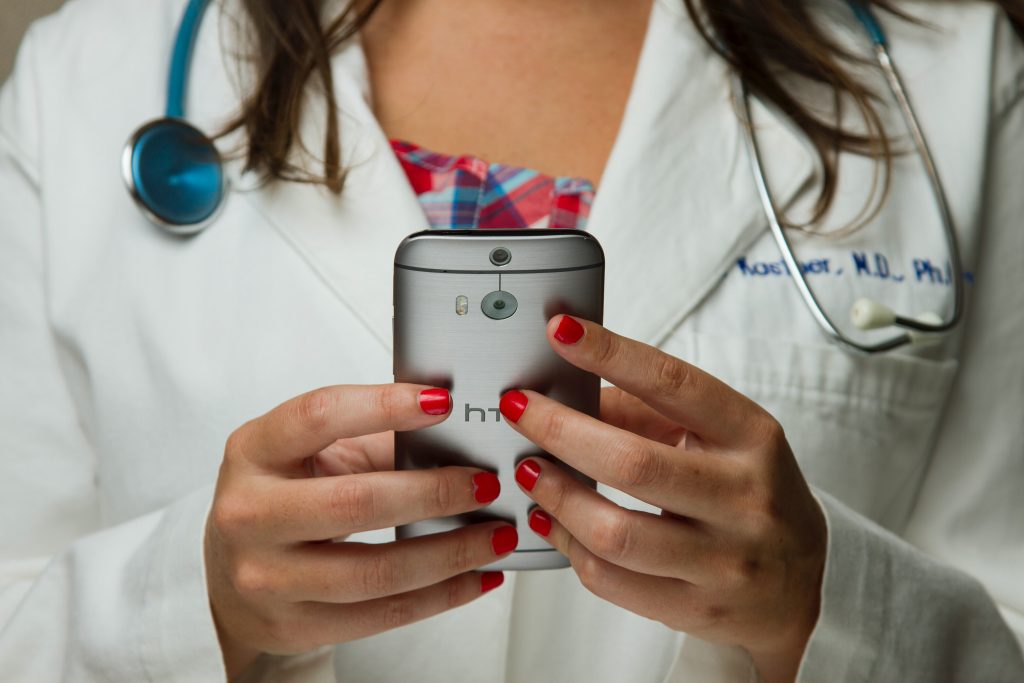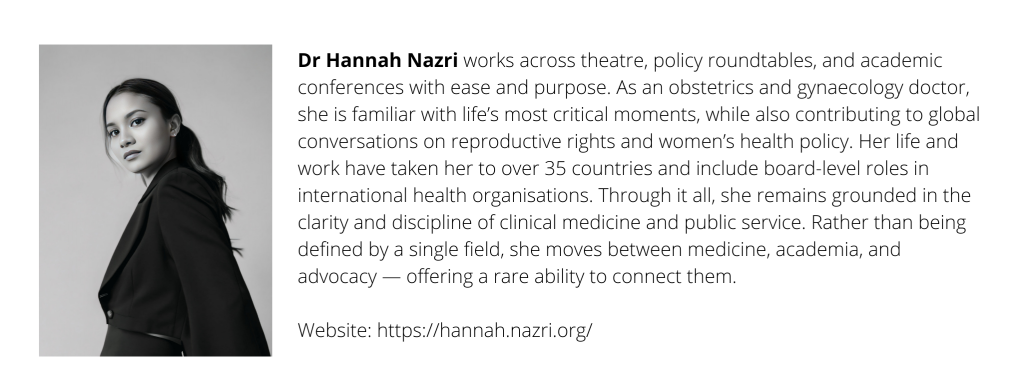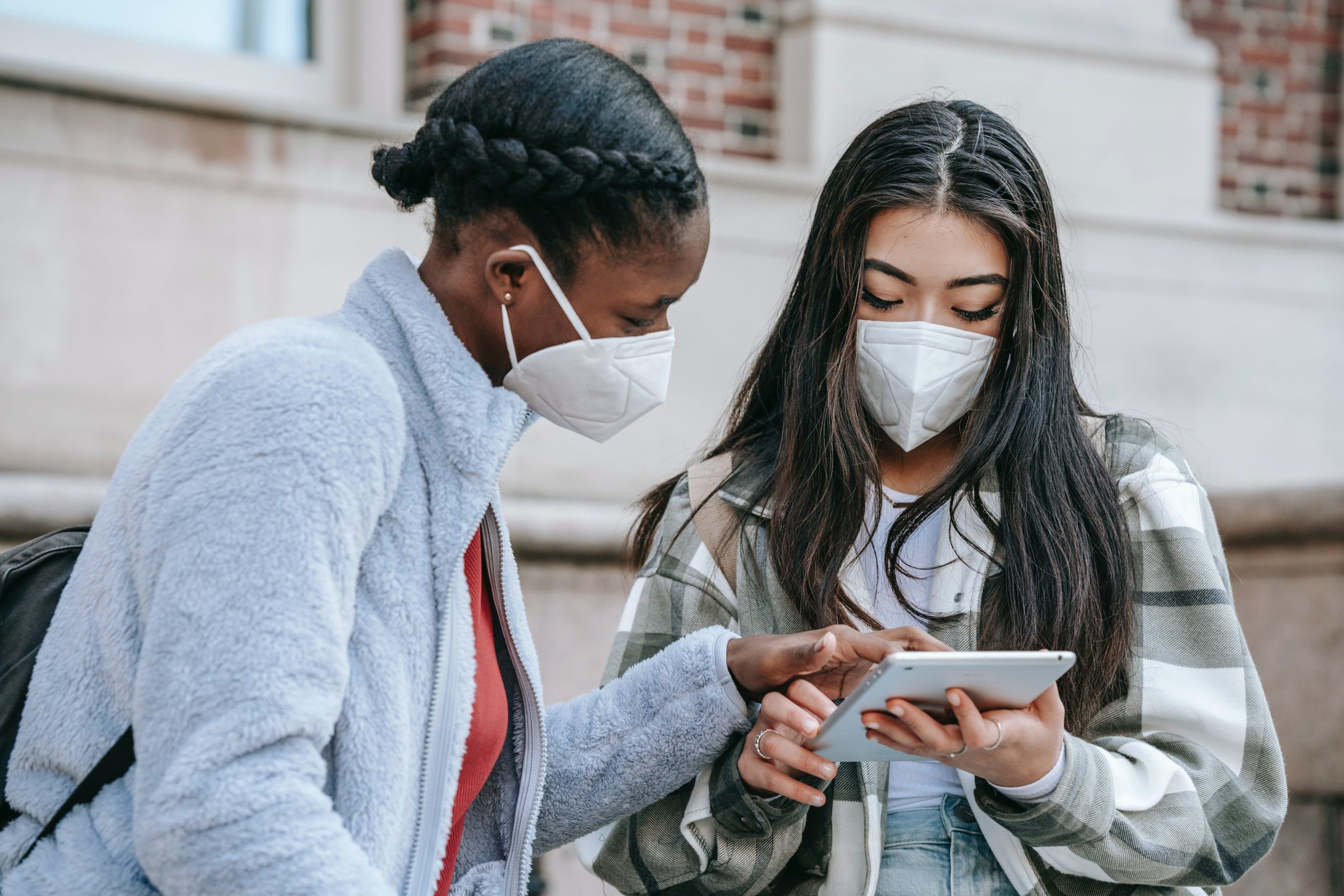
First published in the Harvard Public Health Review (now Boston Congress of Public Health Review) on 19th June 2021. An article on the impact of social media on health illiteracy. Featured image by Charlotte May from Pexels.
The COVID-19 pandemic has revealed many fundamental structural inadequacies in our society. But what is clear is that health illiteracy is the stumbling block that governments are facing to achieve herd immunity from vaccinations to open up our economies. In the UK, 43% of English adults aged 16-65 found it difficult to understand health information texts. When numbers were included in the texts, this percentage goes up to 61% (Rowlands et al., 2015). While those who experienced the poorest health (ethnic minorities, those from lower socio-economic backgrounds, and lower educational attainment) have the lowest health literacy, it is important to acknowledge that a person can be well educated but have poor health literacy.
Perhaps what is jarring is the lack of knowledge of female bodies, and what is normal and what is not. A 2019 YouGov poll identified that 59% of men and 45% of women in the UK could not identify the vagina. 61% of men and 55% of women could not identify the female urethra, and approximately half of men and women in the UK did not know what a labium is (Waldersee, 2019). This may in part explain why Gwyneth Paltrow’s Goop vaginal eggs had been so successful – it is because women do not understand their bodies. Priced at $55 and $66 respectively, the jade and rose quartz vaginal eggs are not everyday items that the average Jane can afford. Thankfully, after prosecution by a Californian court for promoting unproven health benefits such as its ability to balance hormones and regulate the menstrual cycle, Goop no longer promotes this product on their website (BBC News USA & Canada, 2018). However, while it is easy to blame the lack of health literacy of individual patients, what is also sad is the number of medical professionals who continue to profit from the wellness industry despite knowingly understanding the inefficacy of intravenous (IV) antioxidant infusions, for example. A quick Google search will reveal the Harley Street clinics that provide these services. These exorbitantly priced infusions claim to boost energy levels, cure hangovers, and improve sleep. Such unsubstantiated beliefs have permeated our societies, so much so that a 51-year-old woman from Hunan, China, felt the need to jump on the IV vitamin bandwagon but could not afford the normal IV infusion so almost died with multiple organ failure after intravenously infusing herself with a homemade blend of twenty fruits. Netizens attributed her behaviour to health illiteracy (BBC News China, 2019). But I digress. More on my thoughts on the topic and on other pseudoscience practices can be found here.

Undeniably, social media contribute to health misinformation by framing these issues with a scientific appearance against scientific evidence especially in the anti-vaccine discourse (Suarez-Lledo & Alvarez-Galvez, 2021). To combat this issue, we are seeing an increasing number of doctors presenting health information online and becoming social media health influencers with great success, such as Dr Jen Gunter, a Canadian-American gynaecologist, and the New York Times and USA Today bestselling author of “The Vagina Bible.” A personal favourite of mine is Dr Elena Mucci, an NHS consultant geriatrician, with 11,400 followers on Instagram. An interesting development is the role of Dr Austin Chiang as the Chief Medical Social Media Officer at Jefferson Health (Brown, 2019). Dr Chiang is tasked to design the institution’s social media policies, link clinicians with the media department, design social media campaigns, and encourage clinicians to be more engaged in social media medical advocacy. However, it is important for doctors to not only protect the confidentiality of patients when discussing cases online but to be respectful of their colleagues and to declare any financial or commercial interests with any product placements in their social media posts especially pharmaceutical and biomedical products (General Medical Council UK, 2013). Not too long ago, Dr Joshua Wolrich, an NHS trainee orthopaedic surgeon, Dr Alex George, an NHS A&E doctor and former Love Island contestant, and dieticians Priya Tew and Nichola Ludlam-Raine were caught making similar social media posts in support of eating red meat in a marketing campaign for British beef and lamb for an estimated £4,000 per person (Simmons, 2020). Of course, there are benefits to eating red meat, the main issue is whether the promotion of eating red meat is purely done due to its benefits or for personal financial benefit. These two motives do not necessarily need to be conflicting, but the information needs to be balanced. Otherwise, this could dilute the public’s trust and respect for doctors and healthcare professionals.
What are the practical and ethical considerations that doctors must think about before presenting themselves online? Share on XPersonally, I do not think it is appropriate for doctors or any healthcare professional to participate in any form of affiliate marketing when presenting themselves as doctors or healthcare professionals online. Given the number of doctors who may not be presenting the best of medical practices online, I advise consumers to ensure the credibility of anyone who presents themselves as doctors by fact-checking the information with other credible sources and not believing the information based on one’s social prominence. Simply put, ensure that the information is evidence-based, not eminence-based. This is exemplified in the psychosomatisation of myalgic encephalomyelitis and long COVID which I had written in detail here, and by a popular Malaysian opthalmologist and motivational speaker who asserted that ambitious career women have high levels of testosterone (Chalil, 2021). I can see the benefits of social media in countering health misinformation but I can also see how social media spaces can be destructive and toxic to both doctors and patients. It also seems to be the case that it is not the facts that matter but the likeability of the influencer to the audience; whether his or her appearance and background resonates and appeals to the audience. Unfortunately, being online can make one susceptible to boorish and disrespectful behaviour (especially on Twitter) but it is important for the doctor to maintain good bedside manners online as is expected of the doctor in person, especially in disagreements. Disagreements are bound to occur once you publicise your thoughts to the world but we cannot forget that it is unbecoming for a member of the medical profession to discredit colleagues or patients with sarcasm and ad hominem. My personal opinion is that doctors should not stoop to a level that low, online and offline.
Importantly, does social media help counter health misinformation and increase health literacy? What is the impact of social media health influencers on the health literacy of their followers? A study that investigated the effectiveness of the WHO’s infographic on COVID-19 misperceptions observed a reduction in the belief that “a hot bath will increase body temperature” and this effect was maintained for at least one week. However, this reduction does not translate to a reduction in the belief that “hot baths prevent COVID-19” (Vraga & Bode, 2021). Additionally, it is difficult to estimate its effectiveness long term. In any case, any public health strategies to combat health misinformation should be accompanied with the introduction of a health and digital literacy curriculum in schools and universities. If we can make a case for financial literacy to be taught in learning institutions, why can we not also advocate for people to have, at minimum, a basic understanding of their own bodies and the ability to determine the right health experts and credible sources of information so that they can make informed decisions about their own health? It is difficult to decipher the correct health information especially when it is cloaked in scientific language, therefore a health and digital literacy programme must be able to help uncover one’s blind spot and ultimately stop one from sharing social media posts with unsubstantiated claims before consulting with the right health experts.
Related post:
Like what you read? Subscribe to my blog.
References
BBC News China. (2019, March 19). Woman in China nearly dies after injecting herself with fruit juice. Retrieved from https://www.bbc.co.uk/news/world-asia-china-47623816
BBC News USA & Canada. (2018, September 5). Gwyneth Paltrow’s Goop pays $145,000 in vaginal egg lawsuit. Retrieved from https://www.bbc.co.uk/news/world-us-canada-45426332
Brown, S. (2019). Recruiting clincians to combat pseudoscience on social media. Canadian Medical Association Journal, 191(30), E847 LP-E848. https://doi.org/10.1503/cmaj.1095782
Chalil, M. (2021, June 9). Ophthalmologist Muhaya deletes video telling women to ‘act dumb’ in order to find a spouse after public backlash. Malay Mail. Retrieved from https://www.malaymail.com/news/life/2021/06/09/ophthalmologist-muhaya-deletes-video-telling-women-to-act-dumb-in-order-to/1980870
Rowlands, G., Protheroe, J., Winkley, J., Richardson, M., Seed, P. T., & Rudd, R. (2015). A mismatch between population health literacy and the complexity of health information: an observational study. The British Journal of General Practice : The Journal of the Royal College of General Practitioners, 65(635), e379-86. https://doi.org/10.3399/bjgp15X685285
Suarez-Lledo, V., & Alvarez-Galvez, J. (2021). Prevalence of Health Misinformation on Social Media: Systematic Review. Journal of Medical Internet Research, 23(1), e17187. https://doi.org/10.2196/17187
Vraga, E. K., & Bode, L. (2021). Addressing COVID-19 Misinformation on Social Media Preemptively and Responsively. Emerging Infectious Diseases, 27(2), 396–403. https://doi.org/10.3201/eid2702.203139
Waldersee, V. (2019, March 8). Half of Brits don’t know where the vagina is – and it’s not just the men. YouGov. Retrieved from https://yougov.co.uk/topics/health/articles-reports/2019/03/08/half-brits-dont-know-where-vagina-and-its-not-just
About the Author: Hannah Nazri



Very good points about social media and where Doctors, and patients, should be drawing the line online!
Thank you! Social media is great for disseminating information. But I believe the discussions could be more constructive offline. People just say whatever suits them because they can hide behind a screen and a keyboard.
A really good article about doctors and social media!
Thank you, Zafira!